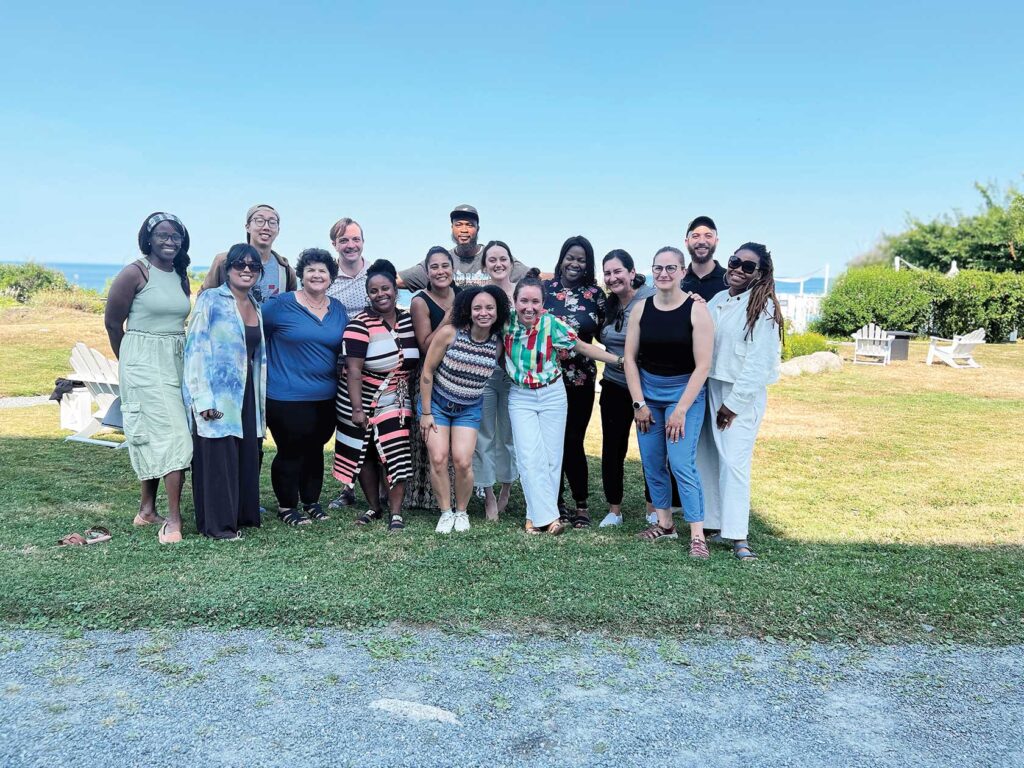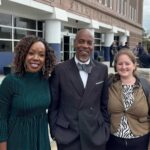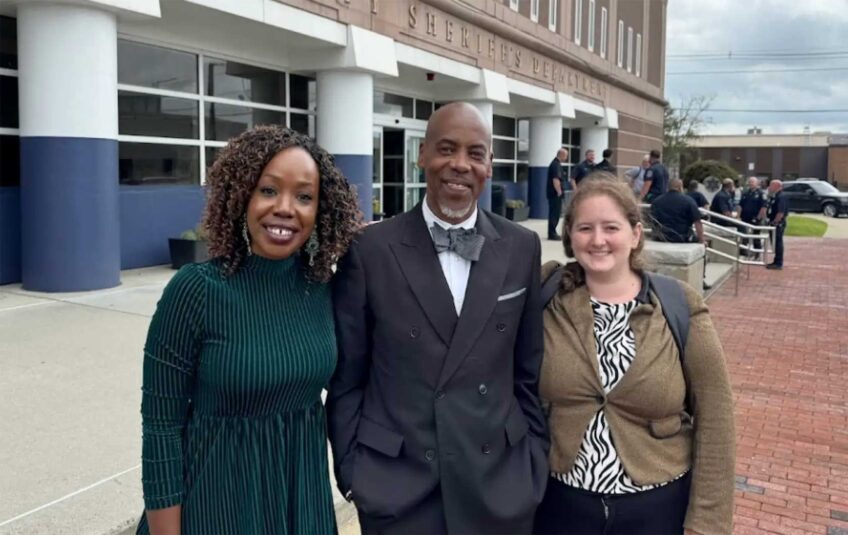Program nurtures ‘transformative’ school leaders
Two-year fellowship draws leaders from schools in Boston, statewide

Six Boston educators are among a group of 15 selected as the second cohort of a fellowship program that aims to equip leaders with tools to improve the high school experience for students and staff.
Led by education nonprofit Springpoint and funded through a grant from the Barr Foundation, the Transformative Leaders of Massachusetts fellowship program offers participants an opportunity to shift the landscape of secondary education in the face of rising attrition rates among school principals.
The fellowship “really stood out to me because of its focus on not just sustaining practices in public schools that have existed for a long time, but to really think about how to transform high schools and transform high school experiences for kids,” said Patrick White, principal of Codman Academy Charter Public School in Dorchester and one the program fellows.
White is joined by leaders from other Boston schools — Neighborhood House Charter School and Conservatory Lab Charter School in Dorchester, Excel Academy Charter High School in East Boston, Boston Latin Academy and Dearborn STEM Academy in Roxbury — along with others from schools across Massachusetts.
During the two-year fellowship, which began in July, the cohort will “build their leadership capacity and instructional experience so they can become innovative leaders and change agents in their schools and communities,” Springpoint said in a statement.
This means completing coursework during the school-based apprenticeship that teaches educators to tackle inequities within schools and foster inclusive and supportive environments for students and staff, said April McKoy, senior director at Springpoint, who is in charge of the fellowship.
Fellows continue working at their respective schools while engaging in the apprenticeship. They earn a stipend of $20,000 and work with a mentor within their school community.
The goal of the fellowship is to “drive … meaningful change within schools,” McKoy said. In the new cohort, some fellows are working to address achievement gaps by devising strategies to support students from underserved backgrounds, while others are developing opportunities for students of color.
The fellowship kicked off with a gathering in Montgomery, Alabama, where the cohort discussed the impact of the legacy of schooling, the slave trade, the Civil Rights Movement and mass incarceration on education in the U.S.
In his first year as interim principal of Codman Academy, White spent time thinking about “transformation, equity and justice” in his career as an education leader, he said. The fellowship has given him space to further explore these questions.
“It’s really important for us as a cohort to kind of ground ourselves in that knowledge and that knowing,” he said of the history of education, “so that when we’re talking about transforming high school, we’re really talking about transforming a system with roots that are deep into … inhumane practices, and the possibility to really change that.”
White said his goal is to take his institution “to the next level.”
“Codman Academy has always been an innovative school,” White said. “We’ve always been in a place of wanting to challenge what high school has to look like with what high school could look like,” he said.
Focusing on staff, students and families
In the two months since the fellowship began, White said, he and his cohort have discussed strategies to improve secondary education. Among them are “empathy interviews,” carving out time to sit and talk to students and their families one-on-one about their “lived experience in school.”
They’ve also brainstormed how to collaborate with staff and teachers to understand their needs and allow them to “grow … within their work environment,” so they in turn can do the same for their students.
Beyond seeking to learn how to change high school education for students, Belzie Mont-Louis, instructional coach and acting program director at Boston Latin Academy, applied for the fellowship for her own professional development.
“Part of the reason I’ve stayed in education for 20 years is that every few years I feel like I need to hone my own practice,” she said. “And if I’m working with others and in service of children, it feels that I should seek those opportunities.”
The idea of an “intensive coaching” program that was tied to her school community appealed to her.
In the fellowship, Mont-Louis’ focus has been creating a better environment for students and staff, she said. Schools have struggled with post-pandemic staffing issues and retention “because schools have become places that educators feel aren’t necessarily sustainable as a career,” she said.
Students are struggling too, with somewhere between a quarter and half of them reporting low engagement, according to a Gallup survey of 2,317 K-12 students conducted in April and May.
The issue of student engagement is a top instructional priority at Boston Latin Academy this year, Mont-Louis said. The school is concentrating on increasing “meaningful discourse between students” to boost student motivation and give them agency in their education.
“The question we are trying to answer is how to make high school a meaningful experience for students,” she said, “and I think that is actually also the problem that the fellowship is seeking to answer with its approach.”
An evolving program
Springpoint’s McKoy said the first cohort, selected in 2022, was successful. Although Springpoint has no quantitative data to point to the fellowship’s results, McKoy said the organization is drafting an impact report that will be available sometime in the fall.
The first cohort completed the fellowship this year, and, based on feedback and observations, McKoy said, Springpoint has tweaked the structure of the fellowship for the second round. The fellowship now includes more communal support, because “the work of change and leadership [is] lonely,” she said. Now, fellows are assigned an executive sponsor, someone from their community who can support and brainstorm with them.
Springpoint also began partnering with the fellows’ schools to better integrate them into the fellowship’s curriculum, and slowed the pacing of the program to ensure that what the fellows are learning is implementable.
Selected from a pool of more than 100 applicants, this year’s fellows impressed McKoy, she said, giving her hope for the future of education in Massachusetts, “especially with the quality of the folks that are stepping into it.” But there is still work to be done to better student achievement and belonging, she said.
“We have to do more to improve their learning experiences on a day-to-day basis, to make sure the students are the architect in their learning,” she said. “We have to involve … communities and families more, and see them as partners in the learning. And we have to address the inequities that exist, especially with marginalized, underserved students.”






